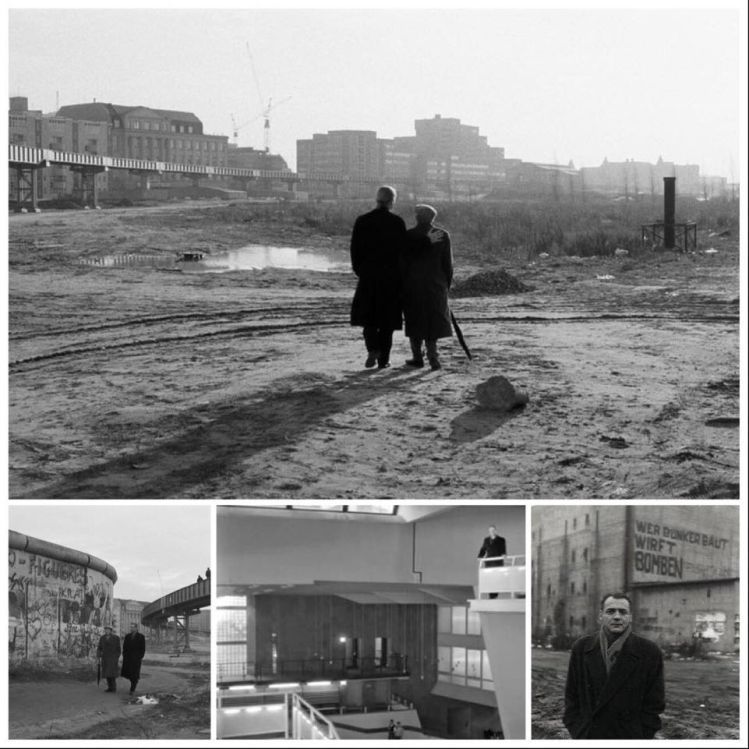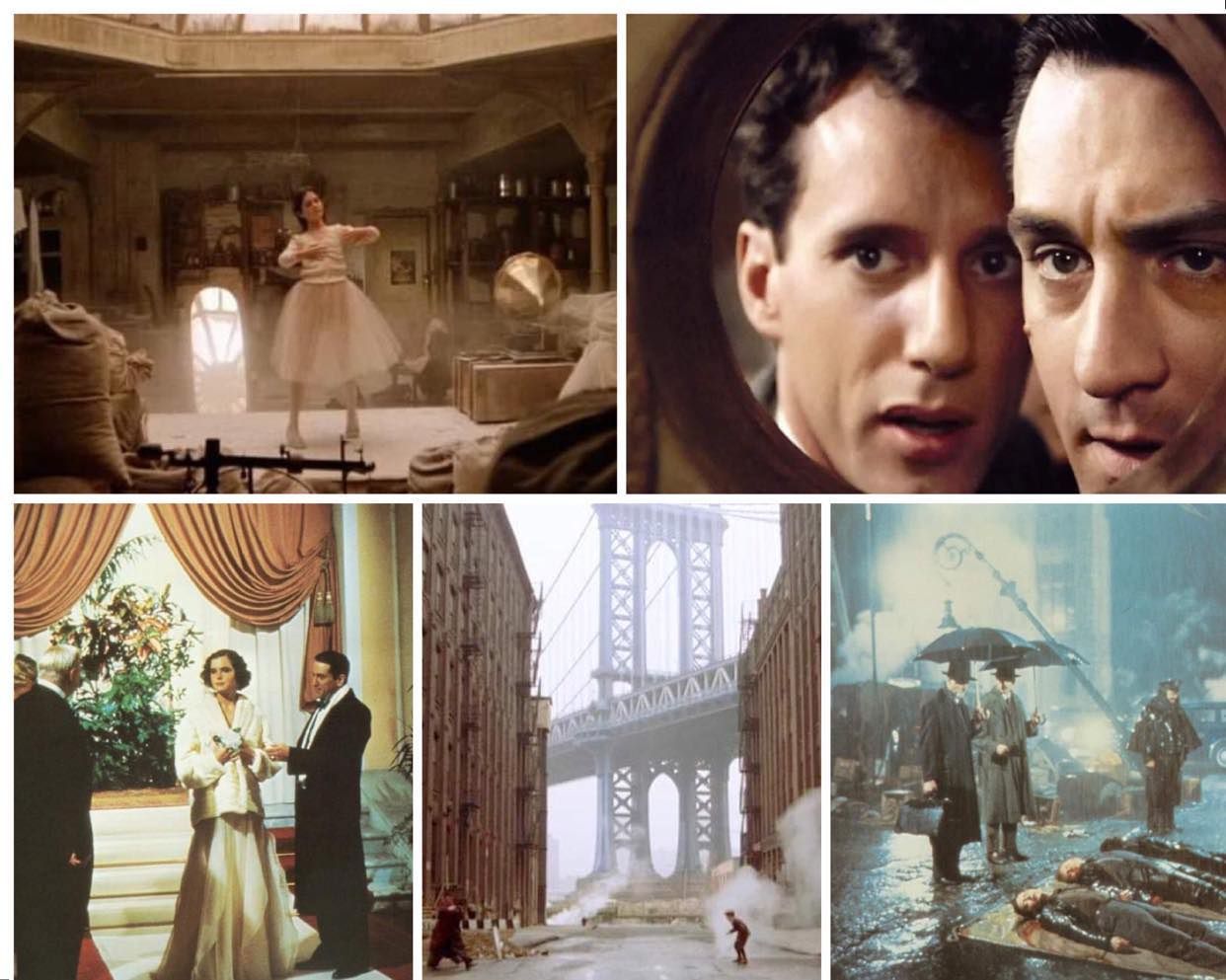Director: Ingmar Bergmann
Camera: Sven Nykvist
Editing: Sylvia Ingemarsson
Great work
magic lantern
"Fanny and Alexander" was Ingmar Bergman's last film and his magnum opus. Love / religion / death / mysticism as the great questions of life are linked in this family epic with autobiographical elements concerning Ingmar Bergman's childhood in a magical and complex way.
Until then, I had seen some of the films made by Ingmar Bergman, which were shown in GDR cinemas and on GDR television. I still have fond memories of "Wild Strawberries", "Persona", "The Touch" and especially "Scenes from a Marriage". Later, I showed "The Seventh Seal", "Evening of the Jugglers", "The Virgin's Spring" and "The Silence" in club cinemas. There is an anecdote from this time about a projectionist's mishap. When viewers suddenly storm the projection room and claim that they remember the film differently. "The Touch" was being shown and in the sequence of scenes, the two main actors had conspicuously ended up in bed together first and then later addressed each other formally again. This would have been a strange dramaturgy for Bergman too. In this specific case, the projectionist had swapped the film files - six reels for a 2-hour film - when rewinding the film before the screening and had sorted the film reels the wrong way round in the film cabinet.
Crime and Punishment: Women's Emancipation"I know that I am always portraying one and the same situation, God and the devil - and what we can do to alleviate our suffering and that of others," Bergman admitted as Sweden's youngest theater director and youngest film director at the premiere of his play "The Day Ends Early".
Bergman grew up in an upper-class, Christian home in the midst of the fascist era, which, according to Bergman, his father was very sympathetic to. His father was a strict believer and authoritarian-patriarchal, he chastised his son and left him with a lasting feeling of humiliation and guilt; themes that are repeated again and again in Bergman's films. As a counterpart to his ice-cold father, Bergman portrays his mother as a loving and warm-hearted woman, from whom he feels separated by his father and at the same time attracted by her warmth, which also seems to be an important theme in his later films. Bergman was more successful than almost anyone else in translating very exciting subjects and the effort to understand the psyche of women into films - one might recall the many strong female characters played by actresses such as Harriett Anderson, Bibi Andersson, Ingrid Thulin and Liv Ullmann. These actresses were very revolutionary at the time and did away with the old image of women as being ingratiating and coquettish in film. I emphasize this because the last film, "Fanny and Alexander," is based in this bio.
"Fanny and Alexander is a story, the chronicle of a middle-class family, perhaps the upper middle class, in a medium-sized Swedish town around 1910, where everyone sticks together. The mater familias is the dominant grandmother with her three married sons." (Ingmar Bergman, quoted from www.filmpodium.ch/film/169249/fanny-und-alexander). The 10-year-old Alexander wears sailor suits like little Bergman and is eventually given a magic lantern, just as Bergman had longed for a home cinema as a little boy.
It was not a complicated machine. The light source was a kerosene lamp, the crank was connected to a gear and a Maltese cross. On the narrow rear side of the metal casing was a simple reflex mirror. Behind the lens was a holder for colored slides. The device also came with a purple box. It contained some glass pictures and a sepia-colored film strip (35 mm). It was about three meters long and stuck together in a large loop. There was a note on the lid: The film was called Frau Holle... The next morning I retreated to the spacious wardrobe in the children's room, put the cinematograph on a sugar box, lit the kerosene lamp and aimed the light source at the white-painted wall. Then I put the film in. An image of a meadow appeared on the wall. A young woman, apparently wearing a national costume, was sleeping on the meadow. When I turned the crank - it cannot be explained; I cannot describe my excitement in words, but I can always recall the smell of the hot metal, the smell of mothballs and dust in the wardrobe, the crank in my hand, the trembling rectangle on the wall. I turned the crank. The girl woke up, sat up, rose slowly, stretched out her arms, turned around and disappeared to the right. If I kept turning the crank, she would lie there again and repeat exactly the same movements. She moved.
From: Ingmar Bergman, My Life. Publisher Volk und Welt: Berlin, 2nd edition, 1987
Alexander's grandmother, Helena Mandelbaum, a former actress, owns a theater and lives in a beautiful house on the market square with the families of her three sons. Alexander's father Oscar is only a mediocre actor, but his mother has entrusted him with the management of the theater. The theater dynasty celebrates Christmas together with the theater ensemble. This Christmas idyll is marred by the sudden death of Oscar, the theater principal. In Alexander's eyes, his death is disgusting, irreconcilably terrifying. Alexander not only loses his father and this cheerful family idyll, but also his home. His mother turns to God and the funeral preacher, Bishop Edvard Vergerus, becomes her close confidant and marries his mother over the course of the year. A joyless time begins for Alexander and his younger sister in the cold bishop's seat of the sadistic clergyman, who seems to be possessed by a furious hatred. Alexander is punished for his childish imagination. How can he escape this hell? It is the magic, the fantasy of Alexander, that sets the clergyman on fire, while at the same time the Jewish antique dealer Isak Jacobi, the lover of Grandmother Ekdahl, is chosen to abduct the children and the mother from the Christian house of worship - straight into the nocturnal and magical world of his junk shop. The haunting is finally over. The theater, opulent sensual life and the indulgently smiling grandmother are back.
Maria Bergom-Larsson: "Ingmar Bergman and bourgeois ideology"
Ingmar Bergman's films have been examined from a variety of perspectives: religious, philosophical, existentialist, psychological, film studies and postmodern. The monograph "Ingmar Bergman och den borgerliga ideologin" from 1977 by Maria Bergom-Larsson is particularly interesting in this context, as it was published at a time when the Marxist influence on the baby boomer generation was strong and the young Swedish cultural elite was at its peak.
Until then, Bergman had been criticized for his political naivety as a bourgeois without class roots, who mostly presented a nihilistic and ahistorical worldview. Maria Bergom-Larsson, on the other hand, analyzed bourgeois ideology as the setting of the bourgeois family with authoritarian fatherhood, i.e. as a patriarchal ideology, Bergman's own views of his role in society and finally society as the outside world and antagonistic contradiction to the private sphere. Bergom-Larsson characterizes fear as an important momentum in Bergman's films.
Fear, however, is never reflected in his films with its underlying causes.





